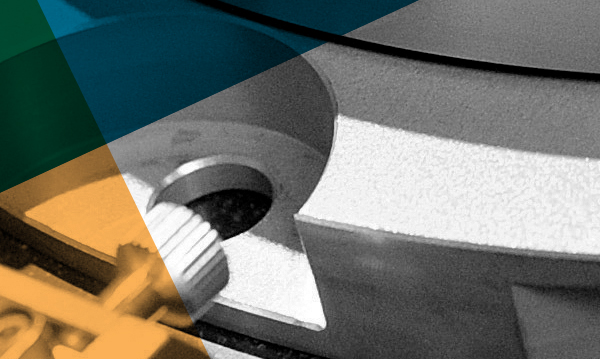Additive manufacturing (AM) continues to provoke huge discussion as it fundamentally questions preconceptions about the future of manufacturing. AM is no longer just a prototyping technology, and much of the focus today is on its transition to a viable and cost-effective direct manufacturing technology. With this transition comes an array of considerations that must be addressed that validate the accuracy and efficacy of parts produced.
It is at this time of great dynamism in the area of AM that the 4th in a series of joint Special Interest Group meetings between euspen and ASPE on Dimensional Accuracy and Surface Finish in Additive Manufacturing has been announced. The conference will be held 10-11 October 2017 at the Katholieke Universiteit Leuven (KU Leuven), Belgium, and is crucial to forwarding the cause of the technology, and to stimulate discussion to firmly position AM on the factory floor as a volume manufacturing technology.
Key issues of concern to additive manufacturing will be covered at the conference, including research work that is being undertaken today to promote precision in the process, and to analyse dimensional errors and surface topography.
Also central to the topics covered will be design for additive manufacturing (DFAM), guiding design engineers through the various issues that are unique to additive manufacturing and which enable the manufacture of highly complex, often customised, parts with graded material composition.
As the additive manufacturing sector matures, there is a necessity to characterise the performance of AM machines, focusing on in situ process monitoring, in-process measurement, and process feedback and correction all of which will be discussed at the conference, as will be the subject of AM standards.
The use of AM for end-use parts requires a level of standardization that was not as important when the technology was almost entirely focused on prototyping. Standards must embrace multiple AM platforms using radically different technologies to produce parts, and must become application-oriented rather than technology oriented. had not been part of the early rapid prototyping movement.
Standards allow engineers to design to a known set of parameters and build a level of trust in the fulfillment and manufacturing process. Today, most major companies using additive manufacturing for end-use part production have to create their own set of materials and processing guidelines. In addition, most of the design tools do not account for the advantages and disadvantages of AM – creating a need for design standards. Standards are part of the necessary evolution of technology.
The conference also addresses how AM can be integrated into a holistic manufacturing process. Cost-benefit trade-offs of using AM within a complex manufacturing process will be assessed, as will engineered partnerships between AM and secondary finishing operations. Discussion will also focus on dealing with residual stress and heat treatment in a process flow, and kinematic tooling or pallets for repeatable part handling.
Metrology is an ever-present area of focus in AM, and will be covered in detail at the euspen ASPE conference. The ultimate goal is to provide manufacturers of components using AM with the metrology instrumentation and post-measurement analysis techniques that will allow them to keep processes under tight control, therefore improving quality, reducing scrap rates, and enhancing environmental sustainability. This will require completely new approaches to instrument design, combining prior expertise and fundamental research to overcome the obstacles preventing current instrumentation from delivering with the required accuracy and measurement speed.
Specifically, the conference will look at surface form and texture measurements on AM surfaces, functional specifications for additive surface finish and dimensional accuracy, dimensional metrology of internal features using x-ray computed tomography, uncertainty and traceability with x-ray computed tomography, and assessing measurement uncertainty.
At the end of the first days programme there is an opportunity for delegates to attend one of the technical tours of additive manufacturing companies based in Leuven, leading AM platform manufacturer 3D Systems or AM software supplier Materialise.









